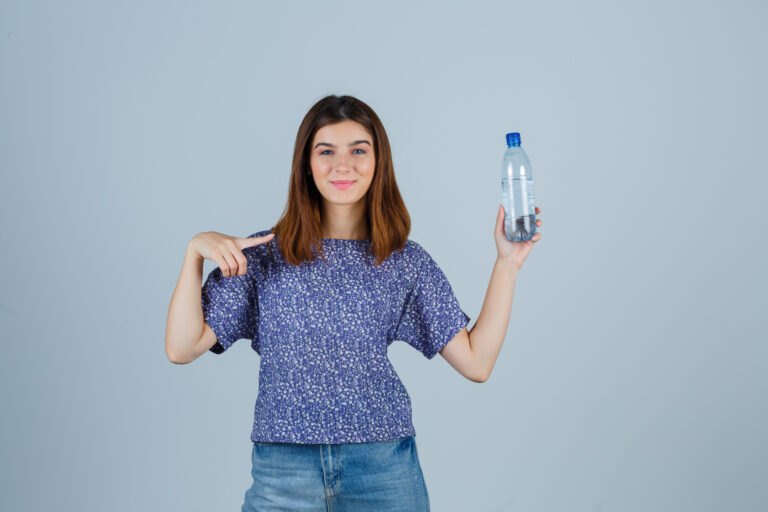Consumers today are more discerning than ever, seeking not only products but also a deeper understanding of what they consume. Bottled water, a product that has become an integral part of modern society’s hydration habits, is not exempt from scrutiny. Despite its prevalence, bottled water is surrounded by several myths that often shape perceptions. In this article, we delve into these misconceptions, unraveling the truth behind each to provide a comprehensive perspective on bottled water.
Myth 1 – Bottled water is safer than tap water
Many people believe that bottled water is consistently pure and safe; however, this perception may not always reflect the truth. In certain cases, bottled water companies simply obtain their water from the local municipal water supply and follow conventional treatment procedures. This situation applies to various bottled water brands, including Dasani Water.
Are you using Dasani water and wondering – is Dasani water bad for you? Well, it isn’t bad per se, but it is not purer than tap water. Both of them go through the same treatment process.
Myth 2 – Bottled water is essential for hydration
Hydration is undoubtedly essential for overall well-being. However, it’s imperative to dispel the notion that bottled water is the exclusive key to staying hydrated. Tap water, readily available in most households, provides an equivalent level of safety and hydration.
The human body does let you consume and absorb water from different sources. Unless you are living in an area where you have severe water quality issues, it is fine if you consume tap water instead of bottled water for hydration.
Myth 3 – Bottled water is not regulated as tap water
There’s a widespread misconception that bottled water is less regulated than tap water. However, federal law dictates that FDA regulations govern the safety and quality of both tap and bottled water. Contrary to popular belief, bottled water is subject to the same stringent regulations as tap water. These regulations encompass general food standards, ensuring that bottled water adheres to identity, quality, good manufacturing practices, and labeling requirements designed for food products.
Myth 4 – Bottled water costs much more than tap water
Detractors frequently emphasize the perceived high expenses associated with bottled water, especially when obtained from upscale retail establishments. Nevertheless, the pricing of bottled water exhibits considerable variations across diverse retail avenues. Numerous people prefer making bulk acquisitions from supermarkets or discount retailers, where more budget-friendly alternatives abound. Through this approach, consumers can secure bottled water at a cost that matches or even surpasses the affordability of tap water.
Myth 5 – Bottled water production is bad for the environment
An impartial analysis of bottled water production uncovers detrimental environmental consequences. Merely one out of every five PET bottles employed in water bottling undergoes recycling, intensifying substantial environmental issues. The production process introduces hazardous pollutants like volatile organic compounds, sulfur oxides, nitrogen oxides, and antimony. While this assertion isn’t entirely baseless, the ecological ramifications of bottled water production necessitate meticulous scrutiny and an allegiance to responsible waste management. Additionally, the surging demand for bottled water compounds these issues, demanding immediate sustainable alternatives and heightened consumer consciousness.
Myth 6 – Bottled water consists of more added minerals than tap water
Another prevalent misconception revolves around the mineral content of bottled water, with some believing that it contains higher concentrations than tap water. In reality, bottled water often undergoes treatment to eliminate impurities and minerals. Following purification, minimal minerals are reintroduced to enhance the water’s taste and nutritional content. However, tap water frequently contains a higher concentration of minerals and chemicals than its bottled counterpart.
Myth 7 – Bottled water is tastier than tap water
Bottled water suppliers often make bold claims about the taste enhancements of their products, citing added vitamins, colors, herbs, protein, and other additives. However, consumers should approach these assertions with caution, as not all may hold true. Some enhanced waters may contain sugar and artificial flavorings. For those specifically seeking fluoridated water, tap water may prove to be a more reliable and regulated option.
Concluding Thoughts
the myths surrounding bottled water reveal a nuanced reality. While bottled water offers convenience, it is not an unequivocal superior to tap water. Both sources undergo regulatory scrutiny, and the choice between them should consider factors such as cost, environmental impact, and water quality in the region. In areas with notable water quality concerns, opting for bottled water may be a precautionary choice. Nevertheless, promoting responsible water consumption, including tap water usage and recycling practices, is crucial for a sustainable and informed approach to hydration.

